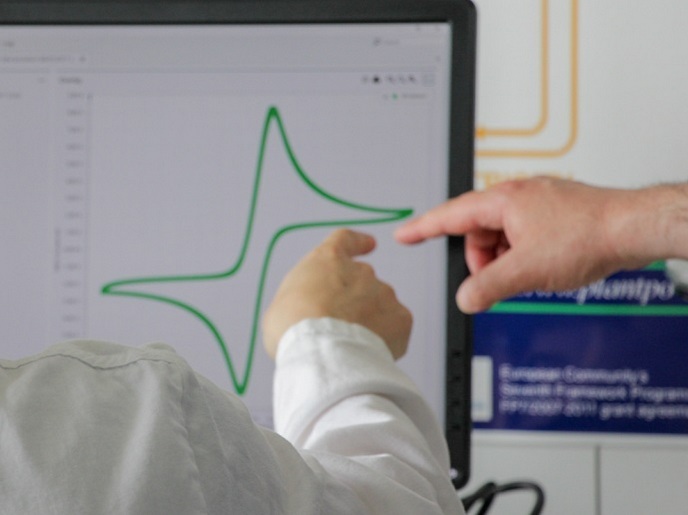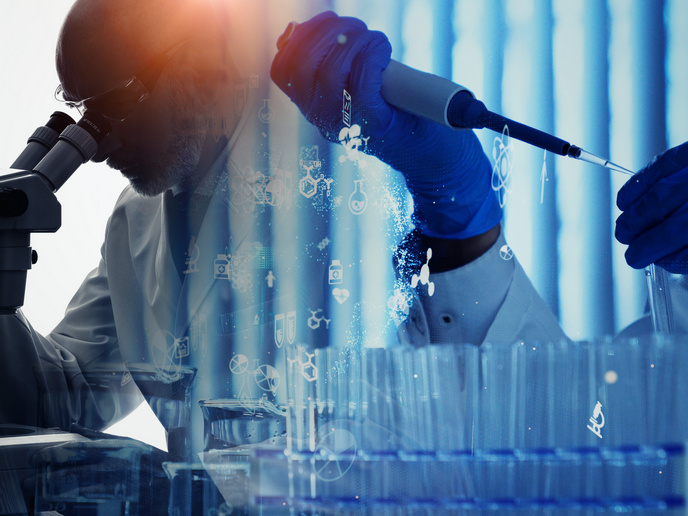An experimental platform improves microbial fuel cell understanding
Electroactive bacteria can directly connect their respiratory metabolism to their extracellular environment by transferring electrons across biological membranes to electrodes. Electroactive bacteria thus serve as low-cost electrode catalysts, and strategies to promote their attachment and facilitate electron transfer may significantly improve the performance of bioelectrochemical devices.
Investigating electroactive bacterial protein activity
Currently, we lack a fundamental understanding of the electron/proton transfer mechanism in electroactive bacteria. Some of these processes can have deleterious effects on biofilm metabolism and stability, thus limiting the utility of catalytic biofilms. We know that this process is facilitated by membrane proteins of complex structure displaying redox properties. The scope of the EU-funded MELBA project was to improve this knowledge and exploit the charge transfer properties of proteins from Gram-negative electroactive bacteria in biotechnology applications. With the support of the Marie Skłodowska-Curie programme, scientists designed an electrochemical platform to investigate the activity of specific proteins extracted from bacteria. “We focused on proteins from electroactive bacteria, microorganisms which don’t rely on oxygen to breathe (like us human beings or like other aerobic bacteria) but on the reduction of extracellular solids like iron oxides,″ explains project coordinator Frédéric Barrière. The platform comprised an electrode covered with natural lipids so that it could host the transmembrane protein under investigation in a biomimetic fashion. They also coated the electrode with pH responsive molecules like quinones to study electron as well as proton transfer of electroactive bacteria. “We showed with a model redox protein that this concept works and that we could measure with the same electrode both electron and proton transfer,″ continues Barrière. Immobilisation of cytochrome c into the supported lipid deposit at the carbon electrode surface allowed the investigation of its electrochemical behaviour using cyclic voltammetry. MELBA project fellow Estelle Lebègue plans to extend this work and employ the platform to further study various membrane proteins she has purified from electroactive bacteria.
Future prospects for MELBA technology
Microbial bioelectrochemical systems hold great promise for supporting green energy transition in the future. In principle, these devices can be implemented in wastewater treatment plants to clean the water by oxidation of organic waste while producing electricity. However, their performance is currently too low to be applied on a large scale, necessitating more fundamental and applied investigation of the bacteria and the factors that affect catalytic biofilm viability. The MELBA platform has the potential to contribute to a better understanding of electroactive bacteria and their proteins for use in electrochemical devices. The investigation of redox proteins with extracellular proton transport ability will improve viability of electroactive microorganisms and catalytic biofilms. In the future, the platform can extend to probe ionophore activity by immobilising appropriate ion sensors onto the electrode surface. Collectively, the MELBA platform will assist biotechnology applications that utilise electroactive microorganisms for catalysis such as microbial fuel cells or microbial electrolysis cells. Considering that alternative renewable energy strategies are becoming a priority due to climate change concerns, improving bacteria performance in fuel cells will help tackle existing reliance on fossil fuel-based electricity.







